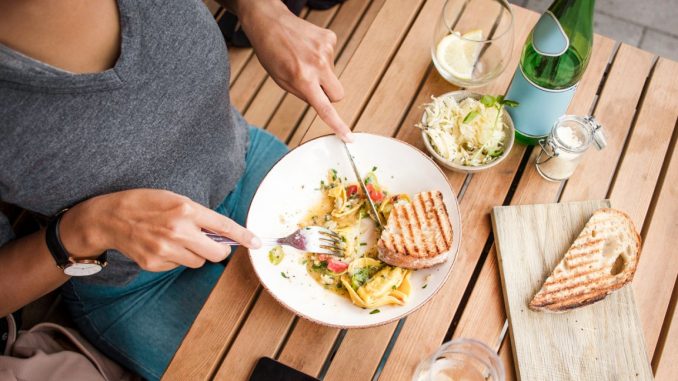
Hume Prati Din Kitne Nutrients Ki Zarurat Hoti Hai
In general, men need more calories. The main reason for this difference is the difference in hormones. Apart from this, there are many subtle differences. Even if you remove the size, weight and nutritional needs, there is a difference between men and women. Men have more red blood cells than women, which is another reason for their need for more nutrients. In addition, the body of men is not able to cope with the lack of plasma glucose compared to women. Men need more calories to stay healthy than women. If a man weighs 180 pounds, then that man needs about 2000 to 3000 calories daily. At the same time, a normal woman of 130 pounds needs about 1400 calories daily. If you work hard, So you can add 300 to 500 calories to your diet. Let us tell you what nutrients are required by men regularly.
Nutrition , their nutrients and importance (How much nutrients do you need a day)
Nutritional deficiency results in diseases like blood deficiency or malnutrition. This is both a dangerous situation. It is dominating in the villages of Jharkhand. Nutritional-rich foods can help us deal with this situation. These food items can be in our villages, around houses or in the fields or in the adjacent forests (from where we get firewood). The need is to identify them, to understand their value. The data given below will guide you. This data is taken from the book “Nutritive Value of Indian Foods” published by the Nutrition Institute, Hyderabad, Government of India. The statistics is based on the food content per one hundred grams, in other words, if we eat one hundred grams of food stuff then how much nutrition our body gets.
Malnutrition is not really a disease, but it causes many diseases. Malnutrition causes loss of energy in the body, thus the power to fight against diseases also decreases. Any disease easily enters the body due to the deteriorating strength.
Protein (How much nutrients do you need a day)
Men should take sufficient amount of protein. Gym going men need more protein for muscle building. Those people who like to eat non-vegetarian, they can easily supply protein with mutton, fish and eggs. But those who are vegetarian, they get their source of protein with little difficulty. Among the vegetarian sources, gram, peas, moong, lentils, urad, soyabean, rajma, wheat, maize are the major sources of protein. Men should regularly consume 56 grams of protein.
Vitamin (How much nutrients do you need a day)
Men should take vitamins to stay healthy, this is very important for health. Without their deficiency, no diet can be called nutritious. By including vitamins in your daily diet, you can improve your health to a great extent. Vitamins are of two types, fat soluble and water soluble. Vitamins make our immune system strong and also play an important role in the repair and care of cells, bones, teeth and cartilage. Along with this, vitamins are also very important for men’s sexual health. Vitamin deficiency can cause problems such as anemia, weak teeth, joint pain and hair fall. Citrus fruits contain sufficient amounts of vitamins in red chillies, broccoli, spinach, brussels, sprouts, berries, tomatoes, potatoes, cabbage and kiwis.

Calcium (How much nutrients do you need a day)
Calcium should be an important part of men’s diet. This is a nutrient that we often overlook. Calcium deficiency is believed to be the major cause of osteoporosis. If reality is to be seen, one out of every four men above the age of 50 has bone-related diseases at some time. Therefore, from 19 to 40 years, every person needs 1000 ml per day and above 1200 ml per day. To complete calcium deficiency, eat green vegetables and fruits. The highest amount of calcium is found in milk. By taking the right amount of nutrients, the health of men remains right for a long time. Men need more nutrients and they should be fed accordingly. If you want, you can also take help of a dietician for this.
There is a natural immune barrier in the body. They are divided into four parts.
A. Skin and mucous membranes
B. Physical secretions
C. Filter
D. Proactive feedback
These automatically strengthen the automated system when there are attacks of parasites, bacteria or viruses from outside or inside. Folk medicine called ethnomedicine, folk medicine or tribal herbs or hodopathy also contribute their full strength in strengthening this automatic immune barrier of the body. In some cases directly. For this reason, the response to the herb therapy or the complaint of side effects is negligible. This is the reason why herbs are recognized as safe drugs. Nutrition has three main components – protein, fat and carbohydrates.
(A) Proteins and their functions
Protein is the lifeblood of any animal. It is the organizer for the body’s cells and tissues. Protein is essential for physical formation and mental development. He nourishes the fetus, raises milk in the mother’s breasts, fulfills the daily needs from infancy to adulthood. Repairs sabotage during work in body cells and tissues. It also has a major role in increasing the body’s immune system or immunity.

(B) Daily requirement
Its daily requirement is one gram per kilogram of body weight. That is to say, if a body weighs 52 kg, then at least 52 grams of protein is required in the foods eaten from morning to dinner, it is more needed in growing children, pregnant women and lactating mothers. is.
One gram of protein provides about 4.2 kcal of energy, which is measured in kcal (kcal). The amount of energy it takes to boil one kilogram of water to 100 degrees Fahrenheit is called one kilocalorie.
(C) What harm is caused by lack of protein to the body?
Protein deficiency causes many damage to the body-
1- Meat muscles become weak, soft instead of ghettos.
2- The health of the body keeps deteriorating again and again due to decreasing body strength.
3- Weakness is felt in the body.
4- Thinking power is slow.
5- The fetus is not able to develop properly in the womb
6- Lack of breast milk of lactating mothers
7- There is no complete physical and mental development in the period from infancy to adulthood.
Protein is found in low or high amounts in all foods except refined circa and fat.
Also Read : Know the right time and way of Eating food !! Follow It
(D) Main source
The main sources of protein are milk, pod, giri, lentils, cheese, soybean, khoya, meat, fish, eggs, and the upper layer of cereal known as leper / Lupu / Lobo. The details of how much protein we get per 100 grams of food are being given. By incorporating the same mixture in food, the daily requirement of protein can be met and the loss of protein can be compensated.
